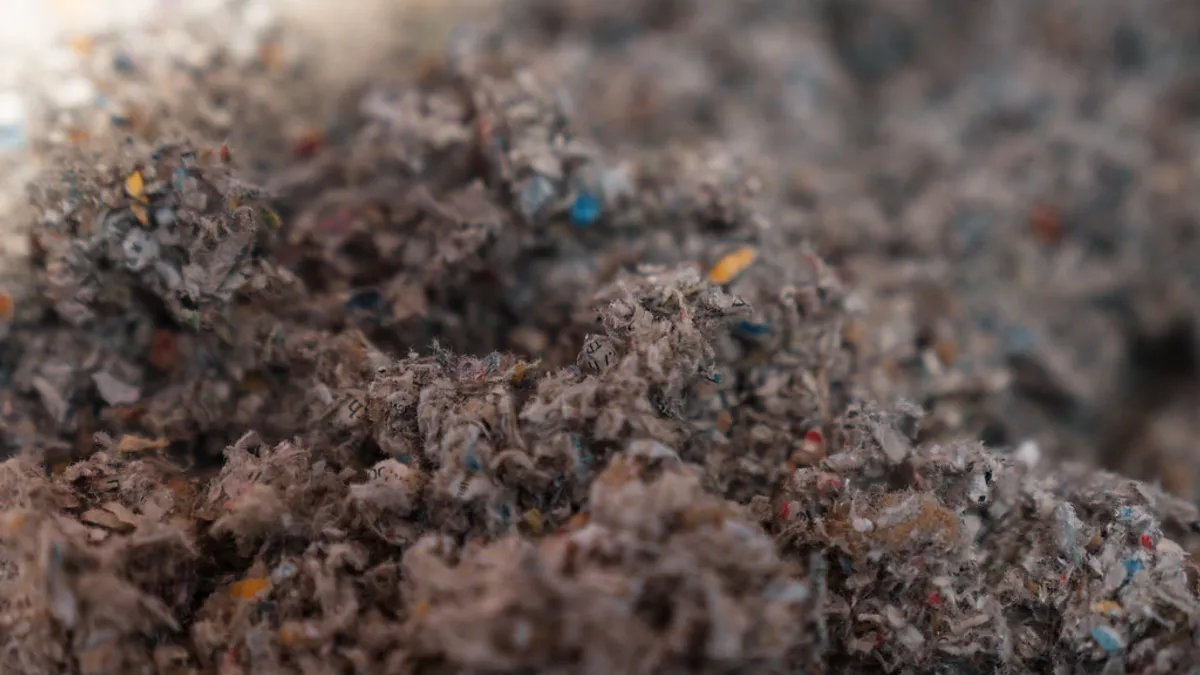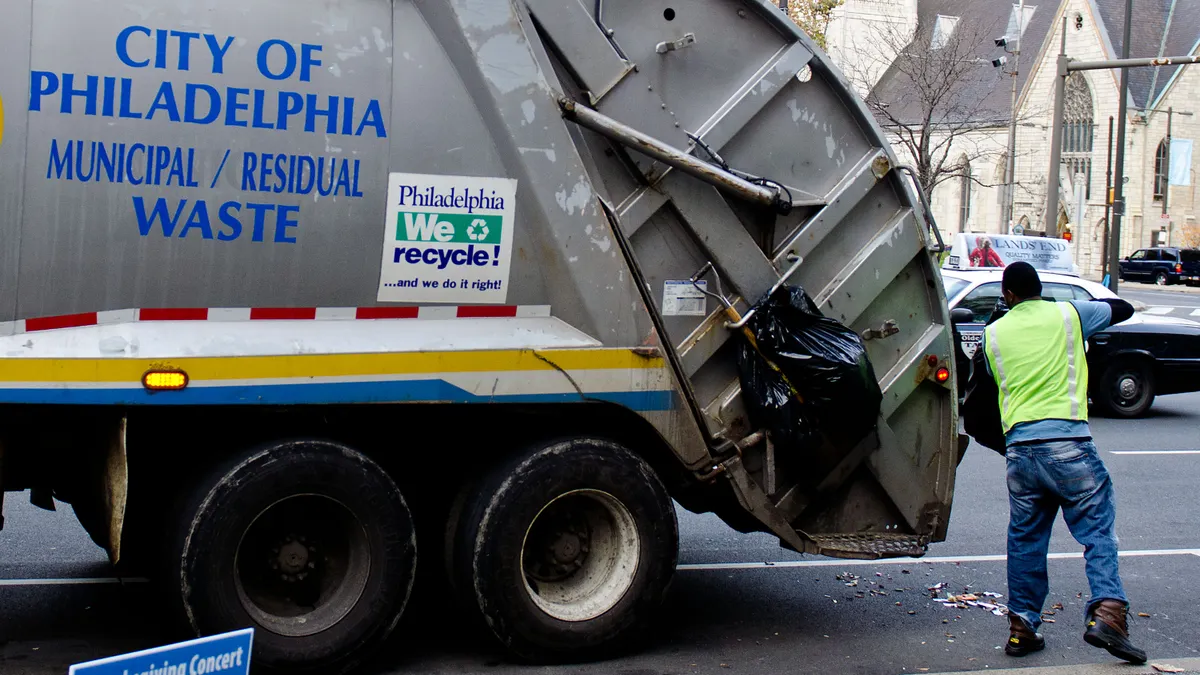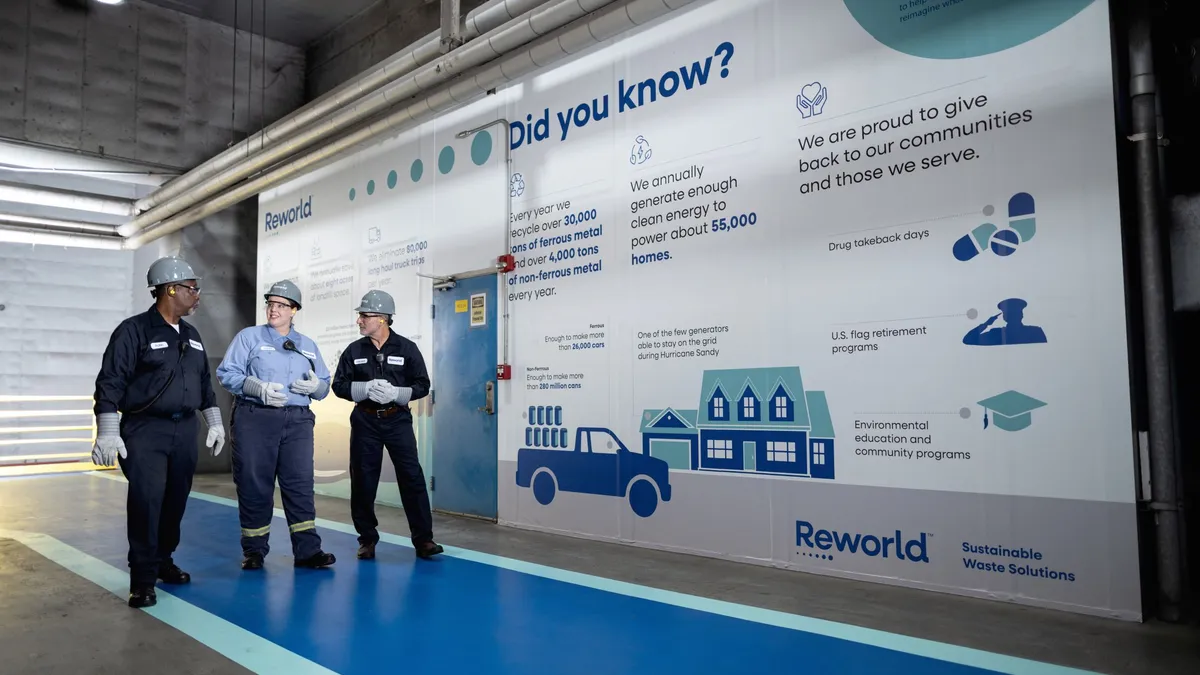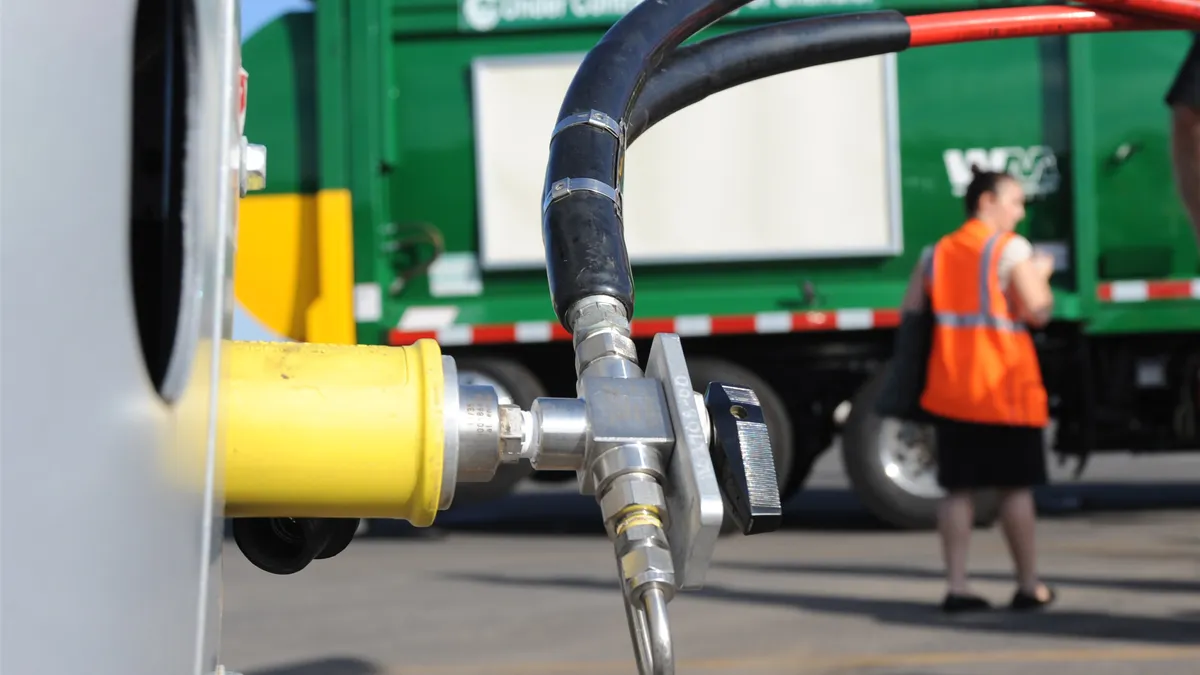Fallout from the COVID-19 pandemic is prompting many changes in the recycling industry, including notable shifts in the recycled fiber market as demand skyrockets for certain types and supply dwindles.
The well-known rush for toilet paper by United States consumers in early March has caused domestic tissue demand to surge. A lot of toilet paper, paper towels and some napkins are made from recycled fiber, explained Bill Moore, president of Moore & Associates. Corrugated cardboard demand also is booming as Americans rely more on e-commerce than in-person shopping.
“OCC already was going up, price-wise,” Susan Cornish, associate at Moore and Associates, told Waste Dive. “Online orders are way up. There are some retailers that report their daily [online] visitors were up 55% the first full week in March.”
Moore & Associates recently completed an in-depth analysis of the current state of the recycled paper industry that shows not all fiber sectors are being affected in the same way. One reason is that fiber supply-and-demand dynamics experienced a sudden, widespread shift due to changes in the economy.
“Commercial volumes are disappearing… So much of the country is not open for business,” said Dylan de Thomas, vice president of industry collaboration at The Recycling Partnership.
For example, temporary restaurant and bar closures have led to little demand for napkins in those settings, while at-home demand grows. The shift is also affecting recovered OCC volumes.
“I think we’re going to see residential curbside OCC volumes go up. But as we know, compared to the commercial, industrial, institutional sector – where OCC recovery is really high – we lose a large percentage of the OCC, the corrugated boxes, that are delivered to homes,” Moore said.
Mill closures are also a factor for global supply, especially for tissue. Many of China’s tissue mills idled as provinces implemented lockdowns, according to Fastmarkets RISI. Whereas U.S. and European tissue mills have been running at capacity for weeks.
The demand is further bumping up the already-rising prices for OCC and mixed paper, as they are in short supply. “It’s supply and demand 101,” Rusty Getter, president of the commodities group at Balcones Resources, told Waste Dive. The Texas-based recovered fiber processor and supplier has noticed alterations to its business as a result.
“The market is getting stronger and is going like wildfire in the Southwest… But we don't know if it's going to do any good because… the material is going away,” Getter said, estimating only having "a few more weeks of material" and adding that "we hope the prices compensate for our loss of volume.”
Even if they are temporary, the higher paper prices are a positive sign, said Closed Loop Partners CEO Ron Gonen.
“To see a bright spot for the recycling industry in terms of paper prices going up is very positive,” Gonen said. “There’s also a recognition of how important recycling is to the domestic supply chain.”
Shifting markets
Mixed office paper markets were rising prior to the pandemic, Moore said, but very little of that material is being recovered right now as most people are working from home. That’s hurting the supply of material available for tissue production, which is the largest consumer of mixed office paper, he said.
Prior to the pandemic, India had emerged at the largest importer of mixed office paper from the U.S. But India’s government imposed a national lockdown – the world’s largest – on March 25 to curb the spread of COVID-19. Unlike the stay-at-home orders in many parts of the U.S., India's policy is incredibly strict. Very few businesses are deemed essential and allowed to remain open, and people found in public for nearly any reason face disciplinary measures.
“That’s clearly having an impact. The mixed paper price market is down almost solely due to India cutting us off,” Moore said.
Even prior to the domestic pandemic response, overall U.S. recovered paper exports were down 15.7% in February year-over-year due to declining activity for kraft scrap and mixed paper. “March and April are going to be more severe,” said Bret Biggers, economist for the Institute of Scrap Recycling Industries. The India shutdown is a significant factor, he said, noting that “our members are already saying it’s affecting them.”
Prior to the lockdown, India had been the largest U.S. scrap fiber importer besides China. Exports to India were down just 0.3% in February, whereas exports to China and Mexico were down 15% and 42%, respectively. India’s government has not announced whether it will extend the lockdown past the original April 14 expiration date.
Sources believe suspensions of curbside recycling programs have not had a significant impact on U.S. residential material volumes so far, because the changes are not widespread in most states and they’re generally occurring in small communities.
“It really depends on where you are in the United States. In some places, there’s nary a hiccup,” de Thomas said. With commercial volumes falling off, recyclers “have to look to the residential system. And if they’re not collecting and processing, you have a hiccup in the supply chain,” he said.
He cited changes with a few communities’ recycling collection practices to reduce worker exposure to COVID-19, such as asking residents to let recyclables sit for a few days to ensure any virus on materials has died. There are a few instances of well-intended messaging that could be detrimental, though, such as leaders asking residents to put recyclables in plastic bags instead of loose into bins.
“We feel that is counterintuitive,” de Thomas said. “We don’t want to see those bags of materials get disposed of instead of recycled,” which they often do because the plastic bags are a contaminant.
Some MRFs are undergoing changes as well. Last month, Waste Management suspended residential recycling operations at five MRFs in California. Waste Management Vice President of Recycling Brent Bell explained that some residential sorting lines are not configured to meet social distancing guidelines, which puts workers at risk.
A limited number of MRFs that supply domestic mills could see flexibility in their contamination standards, Bell said, but the standards remain stringent for material exported to foreign mills. In general, contamination standards are not changing and material still must be clean, sources said.
“I think, and I hope, we're not going to backslide on quality,” Moore said.
Investments in new recycled fiber mills and expanded capacity increased over the past 18 months. Those mostly have come to fruition or are moving forward as planned, with sources saying project stagnation and mill closures are not prevalent. However, Packaging Corporation of America announced last week it will idle both paper machines at an Alabama mill that uses recycled fiber to manufacture printing and writing paper. The idling will begin in May and last for two months, according to Resource Recycling. It is the result of the drop in commercial demand brought on by the pandemic.
What's next?
Sources interviewed for this article prefaced numerous statements with a key point about coronavirus-related information: It is changing by the day. Tissue product stockpiling is expected to taper off, and many economists view a global recession as imminent. Several European nations already are flagged as being in a recession, and the U.S. is believed to be on its way.
While China may be on the way to a post-pandemic recovery, a significant portion of the country's economy is driven by the rest of the world purchasing its goods, Moore noted. China's economic activity will stagnate or drop when other countries are in a recession and exports fall off. "If the rest of the world doesn't come into shape in a few months, that could be a real problem," he said.
The tissue sector tends to be independent of economic hardships. However, e-commerce likely will take a hit in a recession, which would have a negative impact on the OCC sector. Moore said some analysts are now forecasting that instead of an anticipated growth rate of 1-1.5%, the corrugated box market could see a 1% decline instead. Analysts are closely watching the fluctuations to determine short- and long-term changes with the economy and how it will influence the state of the recycled fiber industry.
"We believe there’s some permanent changes that are going to come in the economy and the way people do business," Moore said.
Meanwhile, investments continue in certain fiber sectors. Closed Loop Partners is "still actively investing" in recycling projects and sees even more opportunities to build domestic circular supply chains. "With everything going on today, people realize how critical that is to our society and economy," Gonen said. "Our reliance on complex global supply chains causes major, major issues when there is a natural disaster or pandemic or any crisis."



















